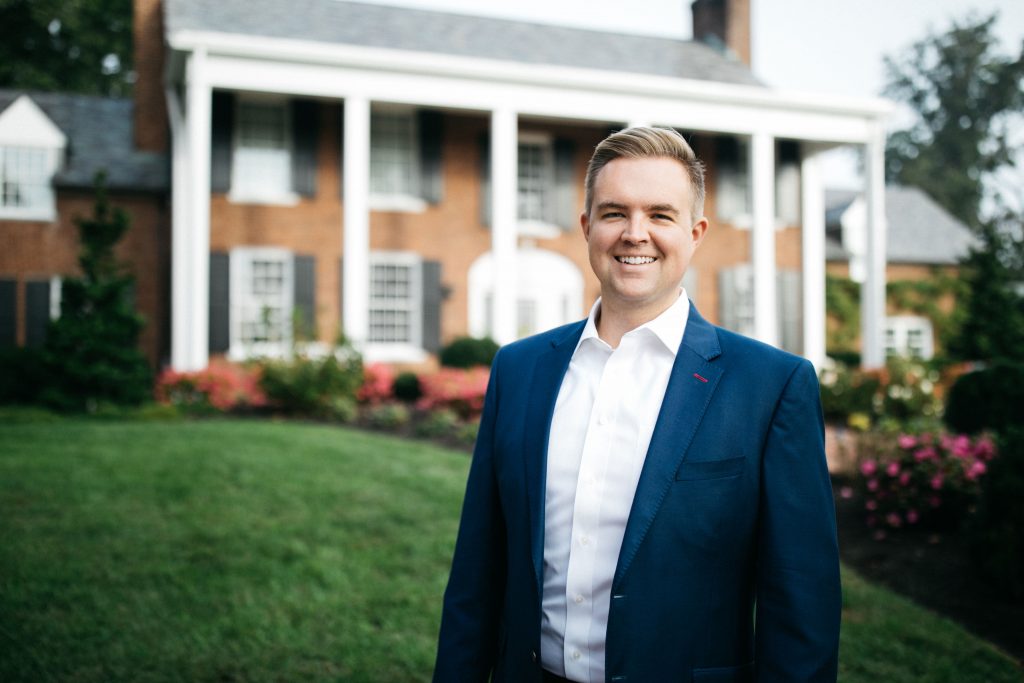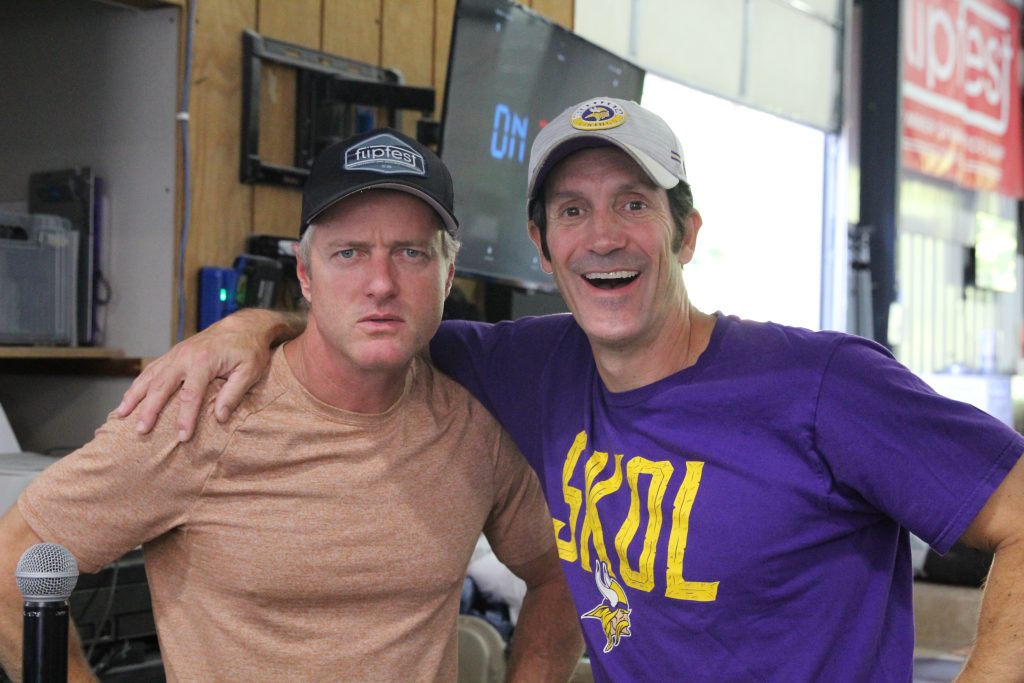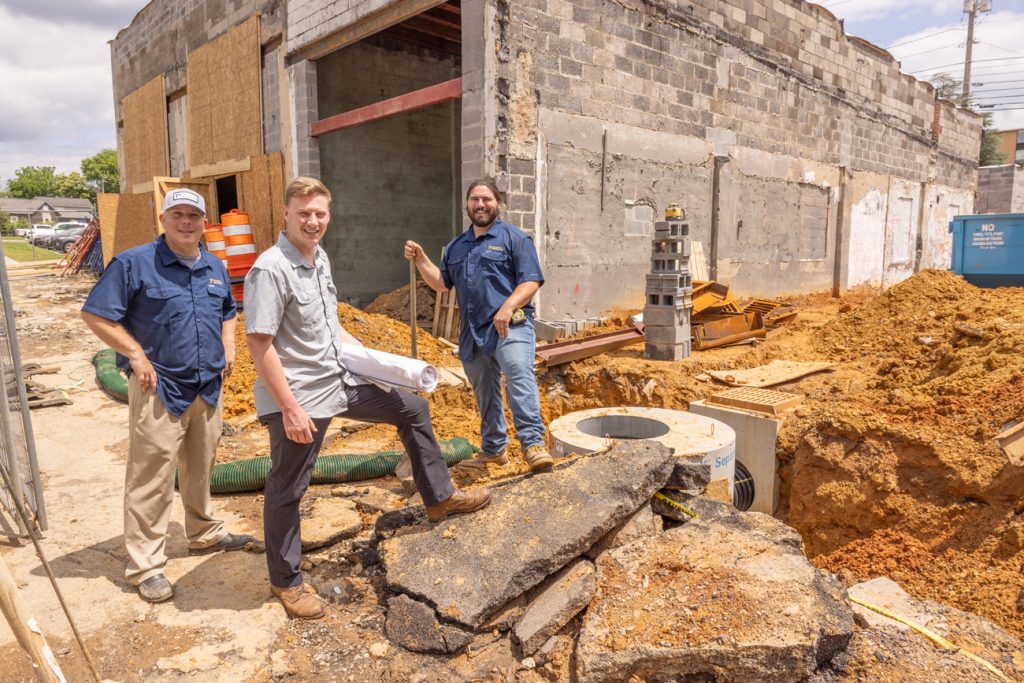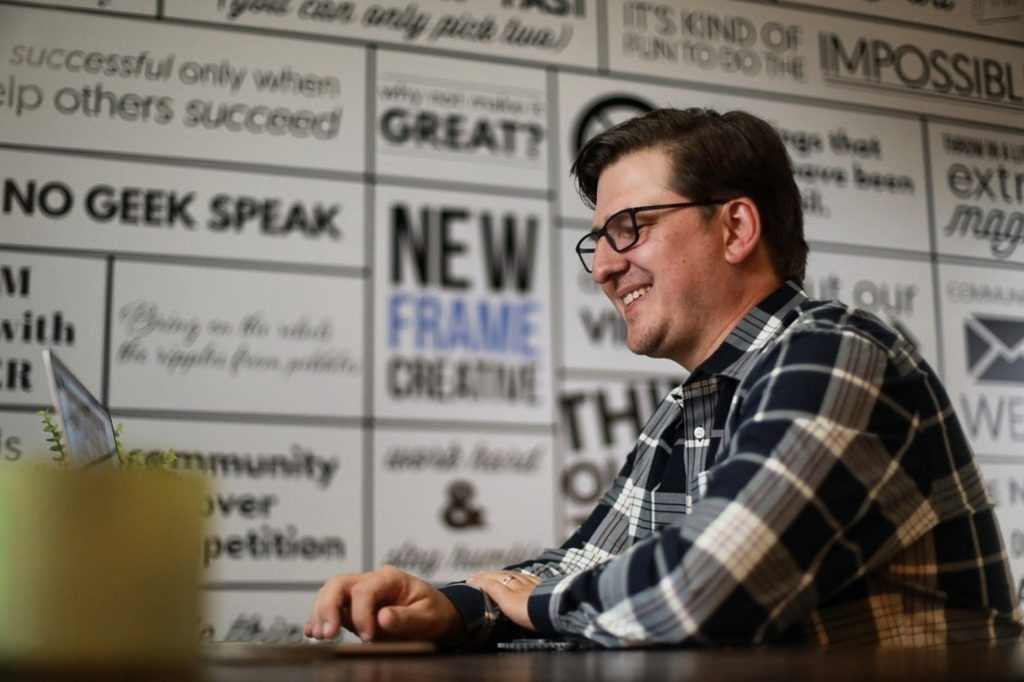Building a business is a skill, and a skill can be learned. Take it from them.
How often do you think about the battery in your pocket right now? And I mean really think about it – where it comes from, how it works, and what it means for the environment. I wouldn’t blame you if you don’t think about that at all; I certainly didn’t. But Anna Douglas did. A lot, in fact. So much so that it became the springboard for SkyNano, the company she co-founded alongside Cary Pint back in 2017.
“I realized the way that we synthesize and mine the materials that make up our batteries is often a very dirty process and can undermine their use as a clean energy,” says Anna. “So we started looking at how to synthesize carbon in a more sustainable way.”
SkyNano’s process allows carbon dioxide to be converted into high-quality carbon nanotubes, which can then be used in other products. While this technology is still new with only a few testbed locations, and with the actual nanotube manufacturing all done at SkyNano’s facility, Anna is looking forward to the day that she can start installing the machinery on smokestacks all across East Tennessee, producing nanotubes right on-site. It’s a brilliant innovation with the potential to make a real difference.
But it takes more than just a good idea to make a difference—and be a successful business owner. If Anna’s idea had stayed in that Vanderbilt laboratory as a student project, then it would have lived out its life on a shelf somewhere. It took guts, perseverance, studying the intricacies of business ownership, and a healthy amount of risk-taking to give her idea the opportunity to shine. And she’s not the only one to have taken such a leap of faith. Hundreds of others in our region have as well.
Building a business is a challenge, scary even sometimes, but for East Tennessee entrepreneurs, it’s a labor of love. We caught up with some of the region’s business owners to learn more about how their companies came to be and the lessons learned along the way.

Find a Need and Run With It
Whether you’re speaking to the owner of a brand-new business or a 50-year veteran of their industry, everyone was a new business owner at one point or another. Some people turn to entrepreneurship after a successful career working in the field, but others come to it as unknowns, having to carve out their niche without the support of a reputation. Regardless of where they come from, every entrepreneur was a new business owner at one point. And they’ve all learned the dos and don’t s of business ownership, starting with the need to identify a real need in the market and find a solution to match it.
“You have to find a way to honestly ask the market where the hair-on-fire need is,” says Anna, “I’ve seen people try to fit a square plug in a round hole somewhere, and it just never works.”
Lucas Haun, a leading real estate agent in the region and a founding partner of Keller Williams Signature, says one of the key elements of making this work is ensuring you understand the costs associated.
“You’ve got to look at the numbers,” he says. “The numbers have to work, and if the numbers don’t work, then you need to wait until the numbers work.”
Need can mean a lot of things, though; for Anna and SkyNano, it may have been a unique product, but for others, that need is expressed in other ways.

Greg Atkins, founder of the West Knoxville-based multimedia marketing group New Frame Creative, found that while video and web production services existed in his community, they weren’t tailored for small businesses or nonprofits.
“Back when I started, there were only these huge video production companies that mostly did cable TV, so if you wanted to do video production for your website, you’re calling Jupiter Entertainment or another of these companies that wanted to charge you $15,000 for a 30-second commercial. And if you’re Food City or Pilot, you can afford that, but if you’re not, you can’t,” Greg says. “If my only options are to film it myself or spend a small fortune to get video made, there’s got to be a way to meet in the middle of that.”
Meanwhile, for Eugene “Chico” Dupas, co-founder of Ebony & Ivory Brewing in North Knoxville alongside long-time friend Mitchell Russell, the need was a social one.
“We’re going to expose a population of people who probably have not typically been invited into the craft beer community, and that’s black and Hispanic folks,” Chico says. “We want Ebony & Ivory to sincerely be a brewery that really focuses on diversifying the craft you’re seeing.”
Identifying a need in the community and an effective way of addressing it, whether that be your particular expertise in the field or something unique in your business model, is the first challenge for an aspiring business owner. And once that need has been identified, that’s when the real work begins. Prepare your business plan and make it happen.

Getting Your Hands Dirty
Starting your own company will have those interesting early days. For some, your company might start in that bright shiny new space you just renovated; but not always. For most, there are stepping stones to get there.
John Macready and John Roethlisberger, two former U.S. Olympians, operate FlipFest in Crossville, a high-profile gymnastics camp that garners campers from across the country. But it wasn’t always this way. Macready started off his career as a gymnastics camp instructor staying at the house of a camp-goer because the camp didn’t have lodgings on-site, he says. It took time to get to where he is.
For Jackie Griffin, a Knoxville-based chef and restauranteur, she started her business, Jackie’s Dream, cooking out of her house after quitting her last job.
“I just got tired of being underappreciated and underpaid and talked down to in this industry,” Jackie says. “I wasn’t expecting anything more than whatever I cooked for the day.”
It took time for both business owners to build up their followings and skills. Macready, of course, went on to be a famous gymnast and brought his passion full circle by reentering the camp scene on the 150-acre FlipFest property. And this year, Jackie’s Dream celebrates its 10th anniversary with a incredibly dedicated following of patrons.
Macready says there are five sure-fire things to do to avoid unnecessary pressure and stay on top of your goals: the TO-RIDE method. The method stands for Team, Opportunity, Responsibility, Initiative, and Details.
“Our minds are filled up, probably 90 percent, with things that we can’t control and that we waste time on,” he says. “If we just realized it and threw them aside and concentrated on things we could actually control, we would be successful a lot faster.”
It Takes a Team
While there is a lot of work to be done, it is important to remember that first letter in Macready’s acronym: team. You don’t have to go it alone. For him, it was Roethlisberger and others. For Jackie, it was friends and family.
“I was not just a one-woman kitchen,” Jackie says. “It was me, my mom, my son, a friend of my son’s, my cousin, and my business partner’s sister, and then a few nieces helped me out.”
Building the right team, one that can get a business off the ground and keep it moving for years afterwards, is each and every enterprise’s goal.
Magda Smith has been in business for more than 50 years as a hairdresser, owning a salon in Miami for 26 years before opening Femme Touché in West Knoxville, and while circumstances have changed over her many decades in business, her team stuck with her.
“I worked with Heather and Anton since Miami,” Magda says, adding that both hairdressers relocated with her when she moved up from Florida; even some customers followed them to Knoxville.
Isaac Pannell, who owns Pannell Construction, says his businesses were always built around his team, either the skills they already had or ones they could easily be trained in.
“I actually started as a nonprofit working with refugees and internationals. Our goal was to provide workforce development and skills training to them, and the way we did that was by owning and running businesses,” Isaac says. “One of those was a general construction company, and that was my beginning with construction.”
Loyalty and commitment between founder and team is critical to a thriving business.
“Entrepreneurship is wild and crazy. It’s not for the faint of heart,” Isaac says, “but that’s what makes it fun. My advice would be don’t do it alone.”

Marketing Madness
One of the biggest revolutions in the past few decades has been the advent of dedicated digital marketing. The ways people consume media has changed greatly in recent years, and businesses have had to navigate that change. Knoxville is a unique place, with the amenities of a big city but the atmosphere of a small town, meaning that word of mouth still has its place in the market. However, more and more businesses, even mom-and-pop shops have had to start venturing out into the media marketplace.
“It’s harder to get people’s attention, so to even have a shot at getting noticed in today’s day and age, you’ve got to have digital materials that stand out,” Greg says. “If two restaurants are opening up with the same food, and one restaurant throws online a basic social media profile with bad photography and a cheap template website, while the other restaurant hires a professional photographer and builds a professional-looking website with a really nicely done logo, you’re going to pick that second one every time.”
Some of the most important marketing elements for a business are one-time expenses, like having a good-looking and functional website, so they aren’t out of reach for smaller businesses. Particularly in a smaller market, it can be effective to build a consistent base of clientele rather than an ever-expanding one, but this approach does have limitations.
For those still building up their business or hoping to expand, more targeted advertising campaigns may become necessary. In those instances, it’s important to make the most of the budget you have.
“People buy little ads because that’s what they can afford,” Lucas says. “That’s fine, if that’s all you can afford, but you have to be consistent. If there’s a publication that’s out there every month, you have to be in that same spot every month. I don’t know that I ever got anything serious out of advertising until I’d been doing it consistently for years.”
Marketing isn’t always consumer-directed, either. For Isaac, the most important marketing he has done has been to other professionals.
“What we care about is partnering with good architects, where if a client comes to us first, we can refer the architect to them, and if they go to the architect first, then the architect refers us to them,” he says.

The Perfect Place to Thrive
For these entrepreneurs, while parts of the journeys have been tough, they are glad to call East Tennessee home for their thriving companies—and share their insights with fellow members of the community.
“You start a company, and everything seems like it’ll be really fast-paced, and it’s this really exciting, flashy life, with really high highs and really low lows,” Anna says. “But you need to realize this is a marathon, not a sprint.”

Comments are closed.